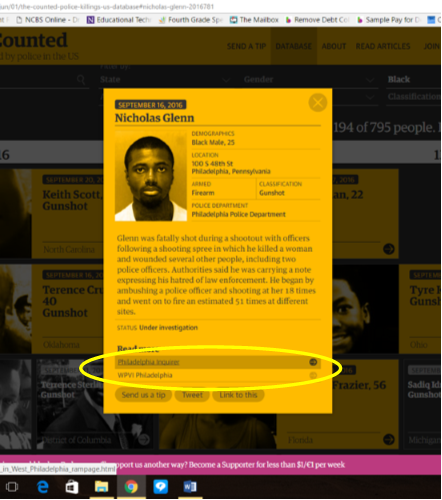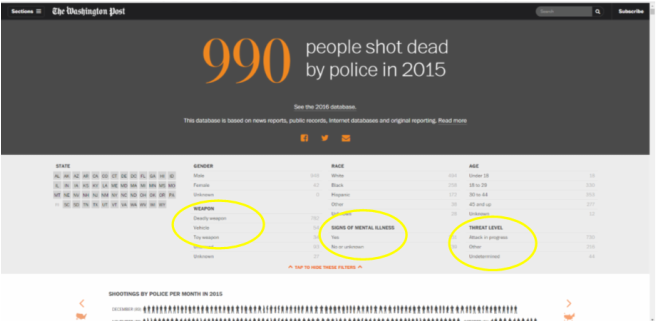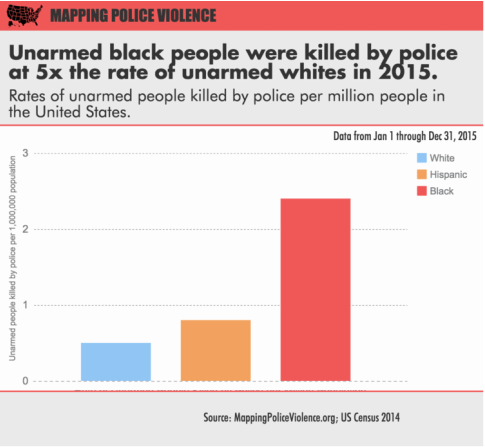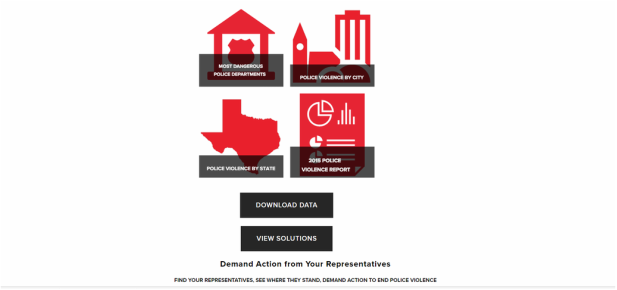|
Written by Sureshi Jayawardene Ida B. Wells once said, “those who commit the crimes write the reports.” Today, the glaring truth of Wells’ words reverberate throughout the Black community as the death toll steadily rises, while law enforcement officers face minimal charges often going without a conviction, and the criminal justice system remains the same well-oiled machine. As the Afrometrics article, “The False Premise of ‘Not Working’” from April 2015 pointed out, the system is working. In fact, it’s working rather well. In the late 19th century, Wells was concerned about the powers that would narrate and subsequently find ways to justify the extrajudicial killings of Black people. She dedicated her life to bringing attention to the dominant discourse, hegemony and American spirit underlining these killings. An avid activist and Black political theorist, Ida B. Well’s words are so relevant today, not simply because of the ceaseless gratuitous violence against Black people, but also because of how documentation of such violence is taking place. Or, not taking place. It is quite ironic, but not writing reports is as good as writing a report that does everything to avoid incriminating the murderer. The Reports They Don’t Write In October 2015, at a US Justice Department summit on violent crime reduction FBI director James Comey stated, “It is unacceptable that the Washington Post and the Guardian newspaper from the UK are becoming the lead source of information about violent encounters between [US] police and civilians. That is not good for anybody.” Comey claimed it was “embarrassing and ridiculous” that entities independent of the federal government had been more efficient in this data collection and that they made it easily accessible to everyone. However, a year prior to that, a few days before Michael Brown’s violent death, the most reputed crime-data experts in DC determined they could not accurately count how many Americans die each year at the hands of police, so, they put an end to counting altogether. Data Compilation Since we are the victim and we fight daily to avenge those who are killed, we have to be the ones to compile the evidence and put together the reports. We have to compose our own narrative so that it will ultimately aid us in our collective action to bring down the forces that oppress us. Today, the FBI claims to know little more than a year ago when Comey made his embarrassing admission. But, there is plenty data, as Kia Makarechi, story editor and associate director of audience development at Vanity Fair, reported in July this year. He writes, “eighteen academic studies, legal rulings, and media investigations shed light on the issue roiling America.” The Guardian, through a crowdsourced project, The Counted, has created an extensive searchable database of police killings in the US. Here you will find amassed significant detail about each police involved death of a civilian from 2015. For each case, you can also find links to news and media coverage of the incident: This database also has a “send a tip” tab encouraging vigilance and awareness among citizens to report any helpful information regarding these incidents. In a separate effort, the Washington Post tracked the number of people killed by the police in just the year 2015. The data gathered includes demographic information for each victim and also notes conditions such as “signs of mental illness,” “threat level," and "weapon.” According to Mapping Police Violence, in 2015 alone, unarmed Black people were killed by police at 5 times the rate of unarmed White people. This organization presents data in easy-to-digest infographic form. Readers can find a map of police violence across the nation, images that portray the rate of conviction of police officers for their crimes, the “most dangerous police departments,” police violence by city and state, as well as annual reports. The organization also urges visitors to the website to demand political action. Other databases also exist. They include: Fatal Encounters and the Facebook compilation Killed By Police. Finally, a database specifically focused on African American deaths at the hands of law enforcement, Operation Ghetto Storm, which is supported by the Malcolm X Grassroots Committee issued a report in 2014. This was actually an updated version of their 2012 report which details their organizational mission and objectives, and tallies the number and frequency of extrajudicial killings of Black people. The author, Arlene Eisen, links present day violence against Black communities to the long history of oppression and subjugation endured by African Americans. Furthermore, Eisen underscores that the model of protest immediately after a police shooting is insufficient to take down the system that sustains this oppression. She describes necessary steps to act against the continued war on Black people, including self-defense training and organization in the Black community, but also building broad alliances with other oppressed groups to work together against the continuing modes of violence on our communities.
In addition, the Massachusetts Supreme Judicial Court ruled last week in the gun conviction case of Jimmy Warren that the fact that Warren ran away should not be used to further incriminate him. The court said that according to state law, individuals had the right to not speak to police and even walk away from them if they were not being charged with anything. The justices further declared, “…flight is not necessarily probative of a suspect’s state of mind or consciousness of guilt. Rather, the finding that black males in Boston are disproportionately and repeatedly targeted for FIO [Field Interrogation and Observation] encounters suggests a reason for flight totally unrelated to consciousness of guilt. Such an individual, when approached by the police, might just as easily be motivated by the desire to avoid the recurring indignity of being racially profiled as by the desire to hide criminal activity. Given this reality for black males in the city of Boston, a judge should, in appropriate cases, consider the report’s findings in weighing flight as a factor in the reasonable suspicion calculus” The court cited evidence from a 2014 ACLU of Massachusetts report about the disproportionate levels of police stops experienced by Black people. The court also cited evidence from Boston police data on field interrogation and observation (FIO) to further support this. Our Own Vigilance and Racial Protectionism As a parent of a Black son, I often find myself frustrated and helpless that as his mother any amount of protection I afford my son will not safeguard him from experiencing racist violence. As we have seen in recent years, Black people are being killed by police for simply being. A new study from the Yale Child Study Center found that ‘implicit bias’ affects how teachers treat African American males from as young an age as 4 years old. Implicit bias refers to unconscious prejudices and stereotypes that influence interaction with different people. The researchers examined “the potential role of preschool educators’ implicit biases as a viable partial explanation behind disparities in preschool expulsion.” Researchers found that when expecting challenging behaviors, educators looked longer at Black children, particularly Black boys. The findings also suggest difference in implicit biases based on teacher race. The findings of this study demonstrate the deep-seated nature of racist thinking and ideas. It is clear that teachers’ hyper-vigilant gaze at Black boys is influenced by the dominant culture’s racist narrative of Black criminality. However, to call something implicit and unconscious is dangerous, because this suggests that people have little to no control over the “unconscious” and that everyone is “biased” and “prejudiced” to some varying degree. In turn, there is little that comes in the form of a critique of the overarching dominant culture that sustains the real culprit: racism. While the term implicit bias can be problematic because it deflects accountability and transparency for racism and its consequences, the results of this study are useful for Black parents making decisions about their children’s education, everyday racial socialization, and overall safety from racial violence throughout the lifespan. Taking action regarding the impact of racial profiling and presumptions of criminality at the preschool age might aid Black parents and larger community networks in preventing our loved ones from being featured in the above databases.
0 Comments
Leave a Reply. |
Archives
April 2022
Categories
All
|




 RSS Feed
RSS Feed